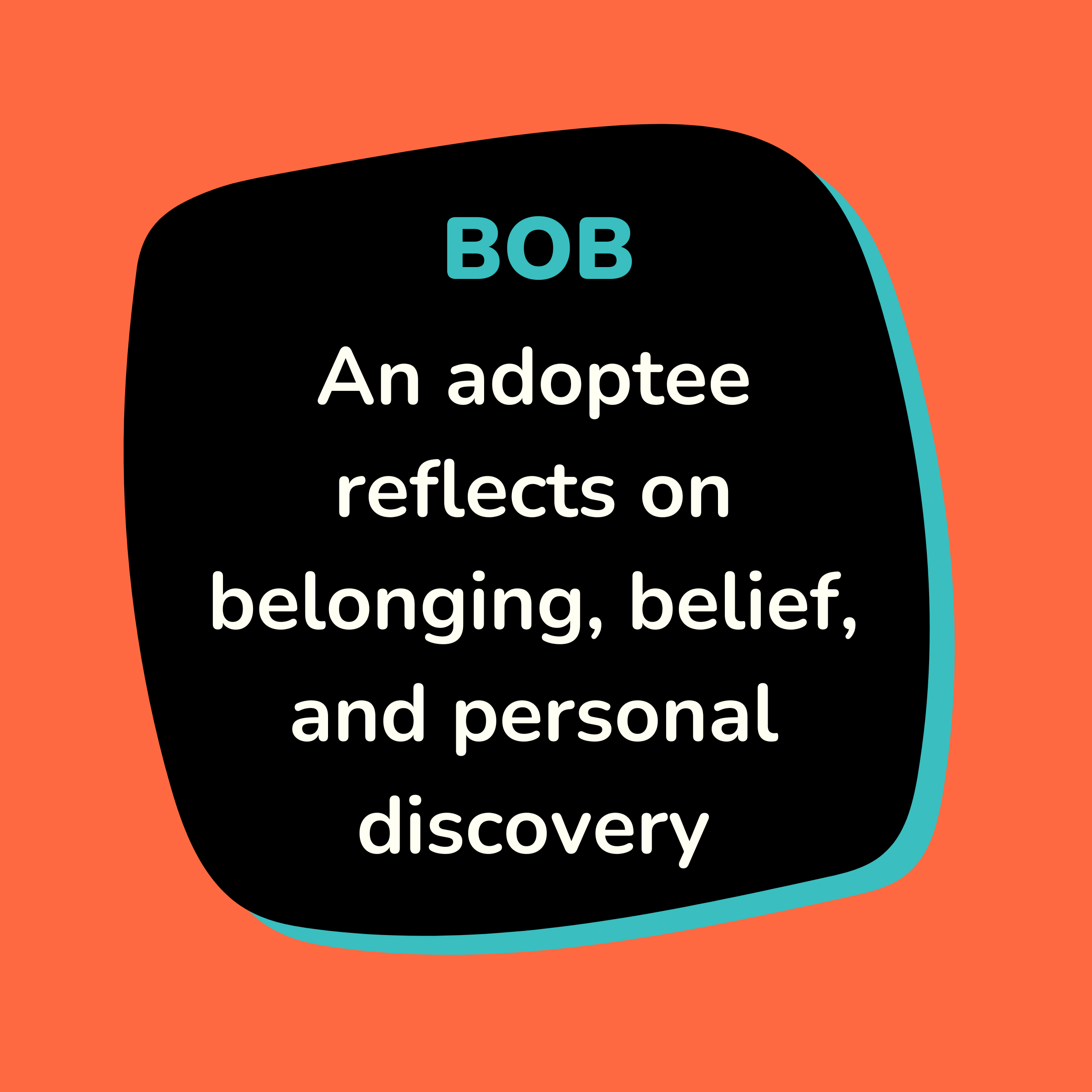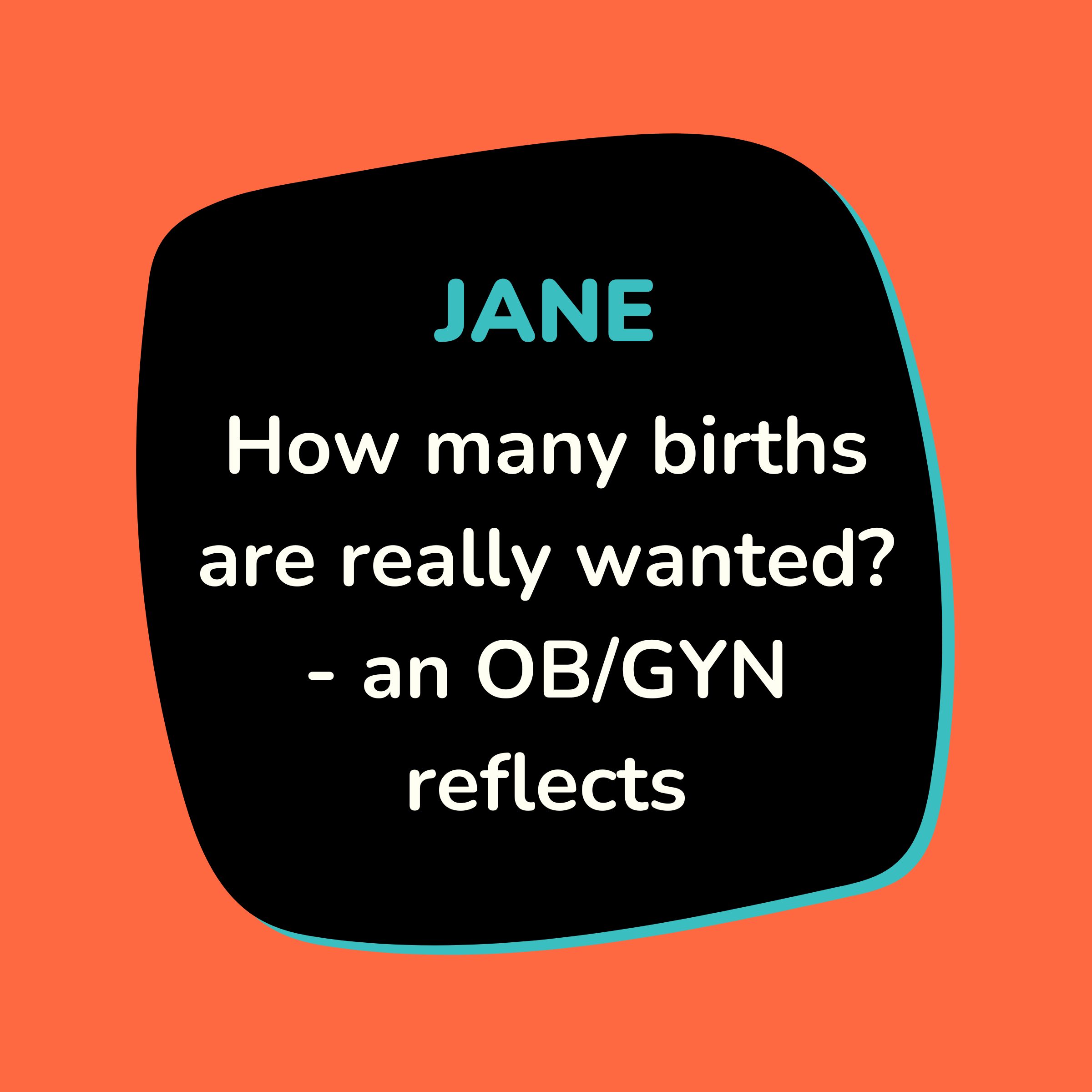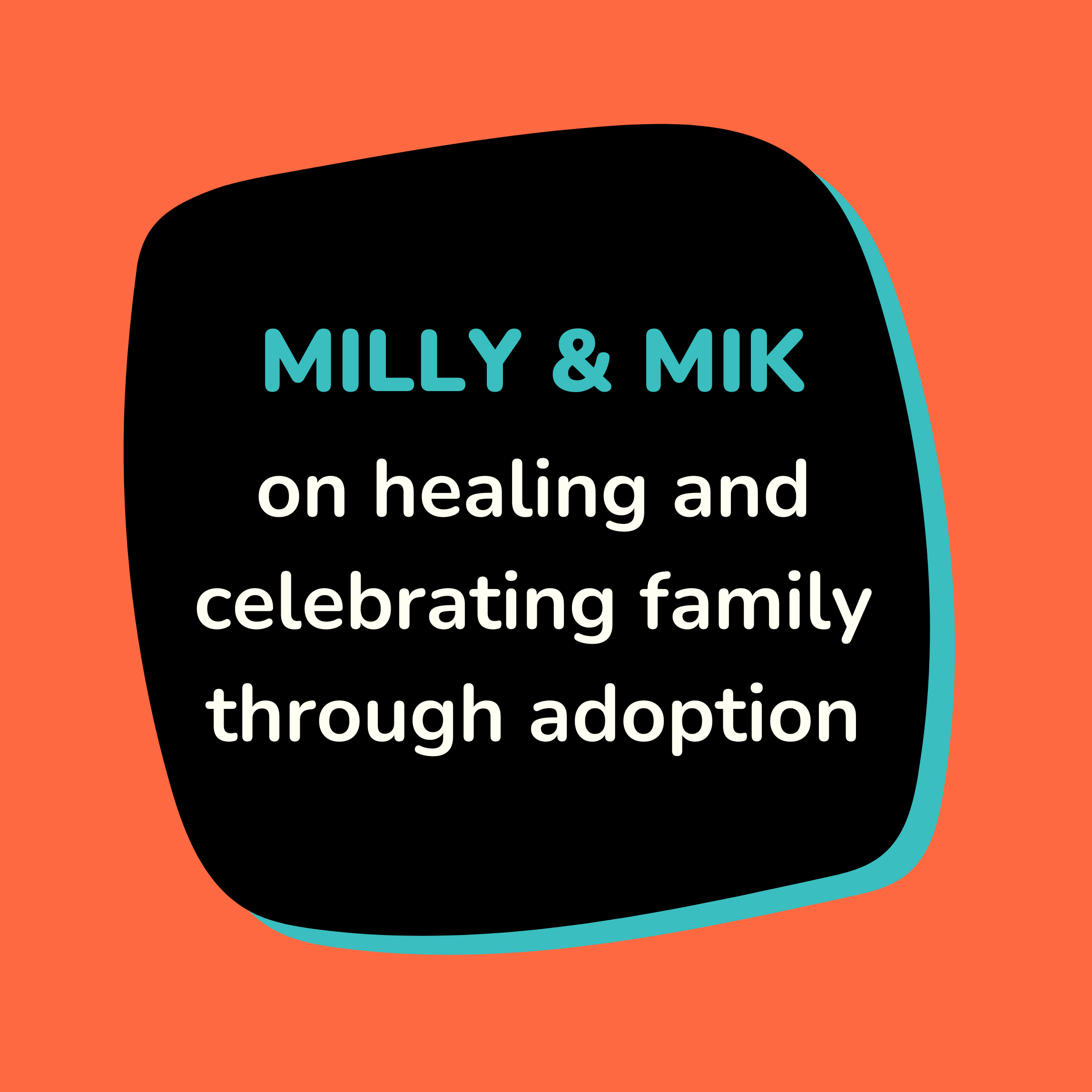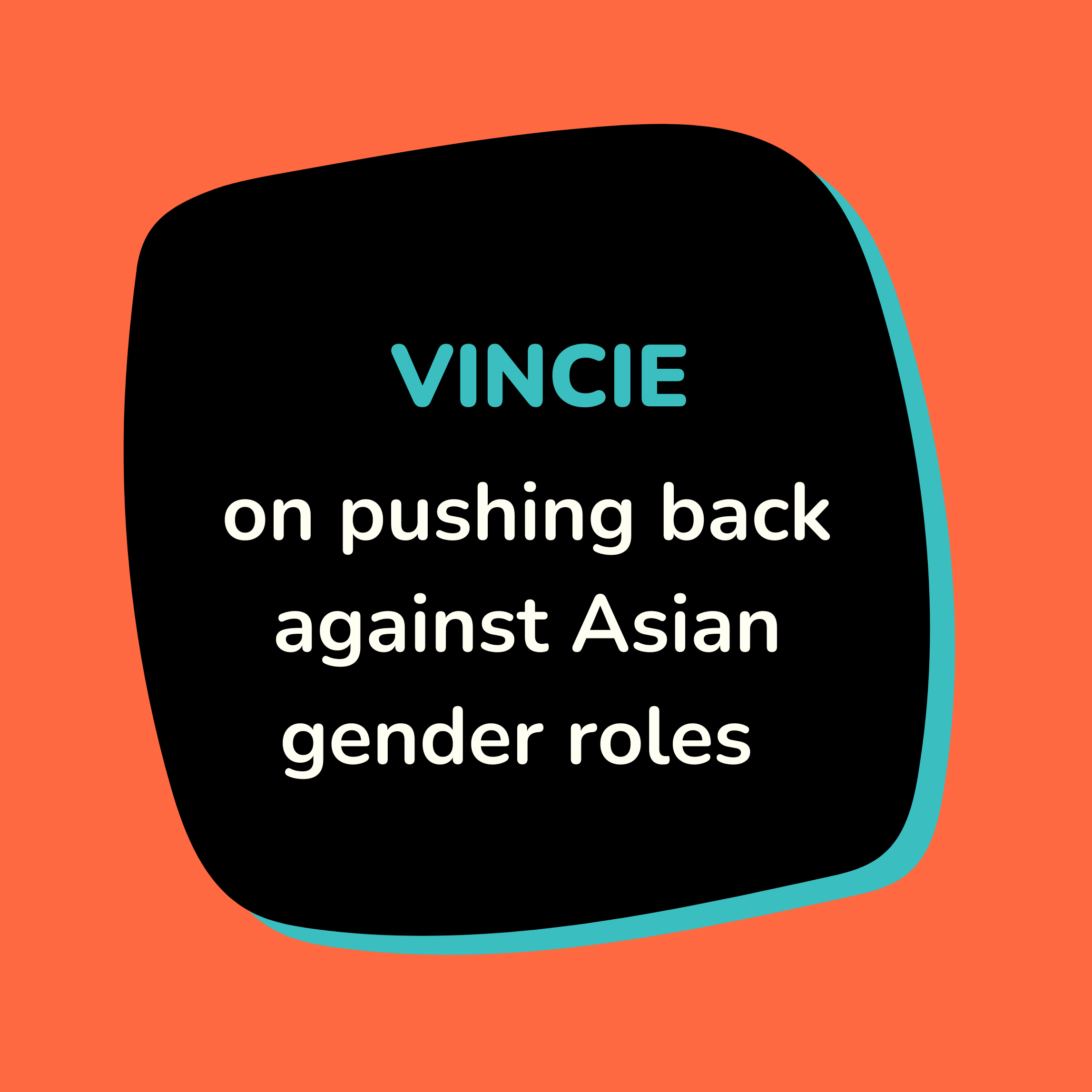Chetana | The Gift of Biological Childlessness
A childhood illness leaves Chetana unable to give birth. After enduring the pronatalist shame of biological childlessness for many years from both her Indian immigrant family and the broader Midwestern US culture, she reflects on the possibilities this opened up for her, and how many women are denied those possibilities by pronatalism.
-
Chetana (00:00):
Often when we're making the choice to be parents, we're not actually making that choice. And I'm pretty sure that had I not had the medical condition that I had, coming from the very traditional South Asian family that I came from, I would have acquiesced to an arranged marriage at a very young age, probably in my early twenties. And I would have had children. And maybe it would've been great and maybe it wouldn't have. I have no idea. But I also know it wouldn't have been my choice. It would've been not forced upon me, but it would've been something that I did just because I didn't know that there were other pathways forward.
Nandita Bajaj (00:51):
That was today's guest, Chetana. Hello everyone, and thank you for joining me on this journey joining. My name is Nandita Bajaj, and I'm the host of Beyond Pronatalism, Finding Fulfillment With or Without Kids. An interview series in which, through intimate conversations with women and men from diverse backgrounds, I explore how they are courageously and creatively navigating pronatalism, the often unspoken pressures to have children, whether from family, friends, or the culture at large. In each episode, I dive into personal stories with people who are forging unconventional pathways to fulfillment, including redefining what family means to them, whether that means being childfree or childless, having biological kids, adopting or fostering children or animals, or creating close-knit communities of friends and loved ones. Hi, Chetana, and welcome to Beyond Pronatalism. It is really nice to have you here.
Chetana (01:52):
Thank you for having me. I'm so excited to be on this podcast.
Nandita Bajaj (01:55):
Thank you. And Chetana, if you can start by sharing a little bit about yourself, where you live, where you grew up, what you do, anything you think is relevant to this conversation.
Chetana (02:06):
Sure. Well, I live in Philadelphia in the US. I grew up in the United States as well in the Midwest, although I was born in India, so I'm of Indian origin. I have spent pretty much my entire career working in the animal rights space, advocating on pigs, chickens, dogs, pretty much all animals. And my family consists of my partner and also a little animal, my dog, Nikki, who's running around here somewhere, who's probably the greatest love of my life.
Nandita Bajaj (02:37):
I love that. And Chetana, how did pronatalism show up for you both within your family context, but also within the community context in which you grew up?
Chetana (02:48):
So I was raised in a very traditional South Asian family, albeit in the Midwestern United States. And I think pronatalist narratives were at play kind of in both communities within both cultures. But I think the South Asian context was more relevant when I was younger just because that was my family and that's where I came from, and that's where my core beliefs about the world came from. And I was in an interesting situation, because I am a childhood cancer survivor. And so as part of the ongoing radiation and chemotherapy treatments I received as a really young child, my ovaries were destroyed probably when I was a toddler, probably during the first round of treatments they were destroyed. And I became aware of it in my early teens, long before anyone really would think about what it means to be a mother or what it means to bring another child into the world.
(03:43):
I mean, I was a kid, so I hadn't really thought about any of those things yet. So I kind of came into young adulthood even with the awareness that I probably would never be a mother. At that point I was too young to have feelings about that. But other people had feelings about that. So I think there was a lot of anxiety just within close family about what does this mean for her life? And there was this underlying concern that it meant that I somehow wouldn't have a good life. Like who was going to marry somebody who couldn't give birth to children, as if somehow that is the purpose of partnership in marriage, and also what kind of life would you have if you didn't have children as well. And none of these things were said directly to me. So I actually don't know exactly how I absorbed these messages, but I was aware of how people who did not have children or people, especially women who are not married, were spoken about.
(04:49):
And so they were spoken about with kind of a certain level of pity or sympathy, but not with the dignity and the respect. I think I grew up with this sense that I would never really belong because I was never going to be a mother and I was probably never going to be a wife, and therefore I was never really going to have a full place in any community or in any society. And growing up in the eighties and nineties in the Midwest, I didn't have a great sense of belonging in kind of mainstream American society as well. I was definitely othered. I came from a non-English speaking South Asian family, you know the long coconut-oiled braids, like I definitely did not fit in there. And so I grew up with this uneasy feeling of like I'm not going to belong anywhere. And so I think that deeply impacted me in terms of just giving me this sense of unease that I never articulated, but that I always grew up with.
(05:52):
And I think part of the challenge was that I didn't have any role models around me of people who were living these really great lives as non-parents or as single people. I just didn't see any role models out there for myself in terms of being like, oh, there's all of these alternate lifestyles that I could live. There isn't this one cookie-cutter recipe for what a good life is. And so I think that is what I've wanted to bring into the world myself, is just to kind of show young people that there isn't just one way to live a good life. There's lots of great ways to live really good life. And in fact, often when we're making the choice to be parents, we're not actually making that choice. And I'm pretty sure that had I not had the medical condition that I had, coming from the very traditional South Asian family that I came from, I would have acquiesced to an arranged marriage at a very young age, probably in my early twenties.
(06:58):
And I would have had children, I would've given birth to children. And maybe it would've been great and maybe it wouldn't have. I have no idea. But I also know it wouldn't have been my choice. It would've been not forced upon me, but it would've been something that I did just because I didn't know that there were other pathways forward. So to some extent, my childhood illness was a gift to me because it gave me the opportunity to explore other pathways, to explore other ways of being, and also to think deeply about my purpose. What is it? I was born on this planet, and it's just this amazing, bizarre little coincidence that I'm here. And what is it that I want to contribute before I go during this brief time that I'm on this Earth? What's the difference that I want to make in the world? What do I want to contribute? Who do I want to be? And I think that having the illness that I have and having that very traditional cookie-cutter path closed off to me, gave me the opportunity to think about those questions deeply from a very young age. And it just opened up a lot of different pathways for me.
Nandita Bajaj (08:11):
You told that story so beautifully. You shared so many amazing insights in the telling of that story and all the self-reflection you've done as a result of things that happened to you. I found it so moving that you said that your childhood illness was a gift because it allowed you to actually think about choice in a way that was never available to you. What a juxtaposition of scenarios here.
Chetana (08:40):
It is really interesting to me, and I think deeply about the fact that there are so many young women out there in our culture, outside of our culture even, who didn't go through whatever I through medically. And so that cookie-cutter pathway is there for them. It's an opportunity for them to become mothers in a very traditional sense, but maybe they don't want that and they don't get the opportunity to really think about it and decide. And no one ever, at least when I was growing up, and I don't know how much has changed, no one ever asked, do you want to be a mother? And even for me, as I grew older, as I grew into my later teens and my early twenties because I am a cancer survivor and I had other medical issues, I was often under the care of physicians. And this issue of my inability to conceive humans, it would come up in conversations both with very close family, but also with physicians who are not South Asian or who are from outside of this culture.
(09:47):
And there was always this conversation around, well, there are ways. There are assisted reproductive technologies that are available so you too can become a mother. But no one ever asked me, do you want to become a mother? Is this something that would give you the utmost fulfillment in life or do you think that there are other avenues for you to attain fulfillment? Are there other things that you want to explore and try? Those questions are never asked. And in fact, when I used to push back, so when people used to ask me that question and people used to bring up, I hated that conversation around assisted reproductive technologies. One, I hated it because I felt it was very ableist. It was based on this assumption that there was something wrong with me that needed to be fixed, and I felt like I was fine the way I was. I did not need any fixing.
(10:41):
And again, the second thing was this assumption that this was my purpose in life was to become a mother and some way, somehow people were going to find a way to make it happen for me. And maybe I didn't need it to happen for me. And I knew from a very, very young age, probably 15 or so, when I really kind of was old enough to start thinking about this and processing all of this information, I've always been an environmentalist. I've always been someone who cared deeply about animals. I was always someone, even as a child and as a teenager - as I was thinking about the habitat destruction across the world and the animals that were dying and the animals that were going extinct and what we were doing to our planet -who just grieved deeply for all of those things and was committed to doing something with my life that would make a difference.
(11:30):
I felt like I'm not going to bring new humans into this world when first and foremost, the existing humans in this world are not being taken care of, not all of them. So there are so many people in so much need. This is an opportunity for me to focus on taking care of the people who already have needs that are not being met. And two, we don't need any more humans on this planet. Look what we're doing to this planet. So I didn't necessarily want to bring more humans into this planet either. And I also felt like I had a different purpose, that somehow I had another purpose. I had to work on these issues - that I was called to advocate for animals. I was called to advocate for the environment. I was called to do something different, but it was so difficult for people around me to grasp that. They're like, sure, sure, you can have an environmental career, but don't you also want to be a mother because really that's the most important thing. Everything else is secondary. But it was so hard to explain to the people around me. And so I often just gave up trying, that actually my purpose in life is not to be a mother and that I'm creating meaning in my life. I'm finding purpose in other things in other ways.
Nandita Bajaj (12:46):
That is so brilliant. And you said earlier that had this not happened that you might've acquiesced to your parents' wishes and the cultural expectations and gotten married and had children. I love that you said you may have liked it or you may not have liked it, because it's so true for so many people that we walk into decisions that we really haven't put in a lot of thought into. And for some of us that they end up working out just fine. And for many others it doesn't. So I'd love to understand, you said you were about 15 or so when you started to make the connection about what your personal passions and interests were and how they were more aligned with a choice that had been made for you. Were there things that happened where you finally came out of that bubble of shame and guilt that was part of your upbringing and then your recognition and your own confidence of where you were going to take your life?
Chetana (13:56):
You know Nandita it's really interesting. I turned 50 this year, and I don't think I came out of that shame and discomfort around my body until I was in my forties. I mean, I don't think it was very prominent, and I don't think that I would have told you that I have shame and discomfort even in my teens or my twenties. And it's not something that I fully articulated. It's something that just lived inside of me, and it was always there. And I really think it was pretty recent, and I would think it was gone, but it would be re-triggered by things people would say. I was sitting with a group of female colleagues just a few years ago, and we were all sitting in a park and having lunch, and they were all mothers and I was not, and they were talking about motherhood, which is lovely because for people who love it, I love children, I love families, I love hearing about other people's lives.
(14:47):
So it was a lovely conversation. And one of the women said I don't understand people who don't have children. This has been the most important experience of my life, and there could be no greater experience than this. And I didn't say anything. And part of me kind of intellectually in my brain, I'm like, that's ridiculous. I mean for you, that might've been the greatest experience you could possibly have, but that's not the greatest experience anybody could possibly have. That's something different for every individual person. Motherhood is not the end all be all for every woman. For some woman it is, but not for all women. And so intellectually in my head I'm thinking that, but kind of in my stomach, I felt like that old welling up of shame or that welling up of feeling less than, you know I have not reached this pinnacle of womanhood that the majority of women have reached. So I am somehow less than. Those messages, I think as we start absorbing them so early, they really live inside of us. And I think that's why a lot of people make the decision to become mothers, even though they're not a hundred percent sure if that's what they want. It's because these messages are so strong and they live so deeply within us and they take root inside of us at such an early age.
Nandita Bajaj (16:14):
Sure. And what kind of messages were you receiving throughout your teens and twenties when you were trying to straddle these two worlds of discomfort and shame, but then also some level of confidence and maybe possibility of a different type of life? Would you voice these possibilities? Would you talk about them to other people?
Chetana (16:40):
I think with the possibilities, I always knew that I wanted to have this incredible life. And so my dreaming up of alternate lifestyles and who I would be and what I wanted to do was a lot born out of the things that I cared about. So I cared about animals, I cared about the environment. I cared about social justice. So a lot of it was born out of that, right? Because at this time I was in school. I was going to college. I was active in different social movements, and I was learning about the world. So a lot of it just came out of this is what the world is and this is my purpose in this world, and this is what I want to contribute. And the other part of it came kind of out of this stubbornness of kind of a little bit of giving the finger to patriarchy and to tradition and to culture and saying, you think that I can't have a good life? Watch me. And so I think it was those two things that kind of pushed me forward and said, oh no, I'm just going to do what I want to do, and I'm going to find purpose and I'm going to live out that purpose. I am not my body. Whatever happened to my body is really irrelevant to who I am.
Nandita Bajaj (17:53):
Well said, yes. You said earlier on that you definitely did not feel like you belonged, especially growing up in the Midwest as a child of immigrants, but then also that the cultural expectations that you knew you were not going to be able to fulfill. So there was pushback from both parts of your culture, within family and outside. Did that kind of change when you started to go to college and meet people from all walks of life with different lifestyles?
Chetana (18:23):
Absolutely. So it definitely started to shift as I kind of left my little bubble and went out into the world more and more. But I also, leaving my bubble and of that you know very kind of traditional South Asian community didn't allow me to escape pronatalist narratives. Those are there everywhere. They were also there in kind of Midwestern mainstream American society. They were there in college. I had very few friends who didn't talk about getting married and having children. I had some, but still the majority were on that path. And I think that I did have fears even during college that I might not have articulated them, that lived inside of me of like, oh, all of my friends are going to get married and be mothers someday. I'm going to be left out. I think there was always this feeling of I'm going to be left out of something.
(19:18):
And there was always this push for, so what am I creating for myself? Am I creating this world for myself where I feel like I belong and I feel like I'm valued and respected? And there were more examples out there for me as I went out into the world. But I think still college for me was still the nineties. And I still just think that not only were there not enough examples out there, but people were not speaking openly about the choice to be childfree. And I hear it a lot more now, which is heartening, especially for younger people. I see younger women coming into my workplace, just in the community around me, saying very openly that they have no desire to be a mother and even no desire to get married sometimes or no desire to partner in a traditional way. And these narratives and these conversations exist right alongside very comfortably with people who have four children and love being a mother or people who are in very traditional relationships.
(20:25):
So all of these kind of lifestyles and choices and conversations are coexisting more so today than I have ever seen them before. So that gives me a lot of hope that things are shifting. I mean, I think we have a long way to go, but I definitely kind of see a tide turning. And I think the more women who are out and men who are out there living different lives, like interesting lives, some partnered, some not partnered, some with children, some not with children, the more it opens up the world for young people and they realize that, oh, I don't have to follow this cookie-cutter path. There's all of these other paths I could take, and here's one that feels right for me.
Nandita Bajaj (21:09):
Yes. And so, on the one hand it does give me hope that there's just so much more choice available. And on the other hand, it causes me some concern of the kinds of strategies that the folks in power are capable of putting into place to take away that choice. Because I mean, we know that once we wake up to real choice and liberation, we will not deliberately turn our back to that. But when those messages don't work through propaganda, sometimes coercion is used. That part really scares me because I am seeing more and more of that rhetoric in political narratives.
Chetana (21:55):
And I do think it's an issue of control and power, right? When I think about why is it that until I was like 42 probably I hung onto this shame and discomfort around the fact that I don't have functional ovaries. Who really cares? But what underlies that? And it's deeply disturbing because I think what underlies that is this really powerful narrative that we have in our society that no matter what advancements we have made in terms of gender equity, there's still this really powerful narrative that lives that says, your value comes in procreation. Your value is your ovaries. Your value is your body and your body's ability to produce children. And you don't really have any real value beyond that. This is your primary value. And that's a really, really scary narrative to still have there. And I think it's still, and like you said in the United States, it came up in the last election cycle. Again, this idea of childless cat ladies as if that's something that's derogatory. And as someone who works in the environmental and the animal rights movement, I can tell you that I have lots of friends who are childless cat ladies, and they proclaim that very proudly. I'm a childless dog lady, and I proclaim it very, very proudly. But it was said in a way to induce shame. It was said in a way to reinforce that really, really dangerous narrative that keeps women in a certain place in our society.
Nandita Bajaj (23:33):
Yeah, as you were saying it took you so long to really rid yourself of that shame. And like you said, that served a really important purpose for those in power to sustain that shame within you. The example that you share of when you'd go for regular checkups, even now, you were being reminded by these physicians that there are these assisted reproductive technologies that are available to fix you, to still make you right, and you could be like everyone else. That to me is also a very scary expression of pronatalism, because what we've done is taken such an old patriarchal value and combined it with leading edge technology. So this is what we've done with our intellect, with our ingenuity, is we've created all these incredible technologies so that we can keep patriarchy alive.
Chetana (24:32):
And I think other stories that I've heard from other women - unfortunately from women who are younger than me, so it tells me that it's still happening - is women will go in for medical issues whether it's really severe endometriosis or other issues, and there's such a priority, especially on younger women who are kind of in their thirties and twenties on maintaining reproductive ability that it sometimes compromises the care that a woman receives. Even if a woman in her twenties is saying, I don't care. Remove my uterus. If this is what is going to relieve me of this pain, and if this is the best option for me, then this is what I want. Giving birth is not a priority for me. There's such a pushback from the medical system to be like, no, no, we can find a way to do this. We can find a workaround. We can find a way to preserve your reproductive ability. But really, like you're saying, even if that individual physician isn't thinking that, what that message is saying is We're going to find a way to preserve this patriarchal narrative, and we're going to find a way to preserve this power system.
Nandita Bajaj (25:42):
Totally. Like you were saying for you, you lived with that sense of inadequacy for so long and that sense of shame. And I know so many people who are biologically unable to have children, who are childless, who are never actually able to get to the other side, where you have gotten to, where you actually looked at that inability as a gift that opened up other doors for you. And I do feel really awful for a lot of folks, if we have not totally examined the degree of pronatalist narratives from which we are living out our lives, then for people who are unable to have children, that level of shame and inadequacy can plague them for their entire lives. That becomes such a huge part of their identity, and that becomes part of their story. And who they are is that they always identify as childless and the one part of their journey that they weren't able to fulfill.
Chetana (26:53):
I think for me, the only solution to that is one, to keep having these conversations really openly, and two, to keep showing people that there is an infinite number of ways to live your life and to have a rich and meaningful life - and parenthood is not the only pathway to do that. And so to keep telling those stories is really important, and to keep talking openly and calling out pronatalism where we see it, I think is really important. I mean, as a child, I didn't have the vocabulary. I couldn't say, what is happening to me is a result of all of these pronatalist narratives that are prevalent in our society. What I'm feeling is a result of ableism and these really destructive ableist narratives in our society. I didn't really have that language to think about it or to talk about it as a child. But I think the more that we put that language out there, the more that younger people who are in that phase of life where all of their friends are having children and their parents and their grandparents and aunts and uncles are asking them when they're going to have kids, but they're having trouble, that suddenly they have this language to be like, wait, why do I feel so bad about this?
(28:07):
Is it because I really, really want to have a child and I can't, which might be a pretty small percentage, or is it because there's all of these forces and pressures around me telling me that I should, and I'm less than if I don't? Well, I want to thank you for bringing this podcast into my life because I think that before I heard the other stories on your podcast and I had the language that your podcast gave me, I thought a lot, you know as someone who works on environmental issues, as someone who works on animal issues, it is hard not to think about overpopulation and the fact that there are just too many humans on this planet, and there needs to be fewer of us, and we all need to be consuming less as well. But it's a sensitive topic to talk about and people get offended really easily.
(28:58):
And I never had language to talk about it that didn't make me feel like I was judging other people's choices or that I was marginalizing already marginalized communities because a lot of this conversation, of course, immediately goes to women in developing countries who are having more than two children or who are having many children. So it immediately goes to a place that feels kind of racist and classist. And so I didn't have language to talk about it. And what's so beautiful about this concept is that it is really about choice, and it is really about make the choice that you want to make that's right for you, but make an actual choice. And the majority of us are not making an actual choice. We're just being pushed in a certain direction because of these pronatalist narratives that have their roots in patriarchy and unequal power structure, and they're pushing us to make choices that maybe we wouldn't make otherwise, that maybe we wouldn't make if we were truly free.
Nandita Bajaj (30:02):
Yes, beautifully said. And how are you feeling about your decisions and your epiphanies that you've had over the last many years, and where are you today?
Chetana (30:15):
I'm in a really great place today, personally. I see for the first time my personal journey, my personal life had always been really separate for me than my professional life. And I see the two coming together. I see how the different power structures, how ableism and patriarchy and racism, all the isms - racism, casteism, homophobia - how all of those things are also linked to speciesism. And there's this underlying idea that some bodies are better than other bodies and that kind of fundamental idea and how that connects to all of these different forms of oppression and how all of these different forms of oppression are linked. And it's also kind of brought me to a place of I do my animal rights work a little bit differently, or I see it a little bit differently now. I don't see it as just being about the animals. It's part of breaking down larger power structures and oppressive systems that underlie all of the challenges that we're facing in our society. So I am continually growing those questions that I started, that I was kind of forced to start asking myself at a very early age when I realized that I wasn't going to fit into a traditional South Indian society of what is my purpose in life? Why am I here? What am I going to do? What do I want to achieve? I'm still asking myself those questions every single day. And I'm still, like I said, turning 50 this year, but still growing as a human.
Nandita Bajaj (31:55):
That's so incredible. Those are such great insights, and I'm so glad that you're able to connect your professional work with all of these incredible insights that you're having. Personally, did you want to say anything about the work that you're doing with foster children?
Chetana (32:11):
I do. So I used to have a job where I traveled constantly. So most of my career, I've traveled nonstop around the world, and I switched jobs about seven years ago. And part of it was I really wanted to reduce my carbon footprint. I was uncomfortable with how much flying I was doing. So I settled into a community here in Philadelphia, and I wanted to, again, really think about, I have this extra time now and I want to be a part of this community. How can I serve this community? And in a lot of ways, this pathway opened up to me where Philadelphia has a large population of children who are wards of the state, who are in the foster care system. We have very few social workers. So an individual social worker has a lot of kids that they need to serve and take care of.
(32:57):
And so a lot of times our young people are not getting the individual attention that they need. And so I trained to be a court-appointed advocate for young people in the foster care system and advocate for their needs, mostly in court. I have only one or two young people on my docket at any single time, so I'm able to give them a lot of attention, make sure that they're getting the resources that they need, but that has also reconnected me to that next generation, especially of young women. So my clients are all young women in their teens, and they're my heart in a lot of ways, and I want so much for them in the world. There's so many challenges being a child in the foster care system, and I don't want on top of all of those challenges to have to kind of face all of these challenges that I faced growing up, right?
(33:50):
I'm even more upset about the patriarchy. I'm really even more upset about these pronatalist narratives that are out there because no, these girls do not have to be mothers if they don't want to. Their value is not tied up in being somebody's girlfriend or being somebody's wife, and it's definitely not tied up in being somebody's mother. They can live any life that they want to live. And so I've become even more strengthened in my resolve to break down some of these systems and create a world where the next generation can really, really be free and live the lives that are the best possible lives for them.
Nandita Bajaj (34:29):
Thank you for sharing that extra bit about this job that you're doing and helping these young people see things in a radically different way. This has been such an incredible interview, and I appreciate so much just your journey and how much self-reflection you've done over the years to arrive at a place that feels so authentic and so liberated. Thanks so much for joining me today, Chetana.
Chetana (34:57):
Thanks for inviting me. This was such a treat to be able to think about these questions and process and sharing this way. Thanks so much for inviting me.
Nandita Bajaj (35:07):
Oh, it's been my absolute pleasure having you. That's all for today's episode. Thank you so much for listening. What did you think of this episode? Do you have your own story you'd like to share? Check out the show notes to see how you can get in touch with me. Whether you'd like to share feedback about the show or a particular episode, or whether you'd like to join me on the show to share your own story, I'd love to hear from you. Thank you so much again for joining me today as we collectively discover and celebrate the many different pathways to fulfillment beyond pronatalism. Beyond Pronatalism is brought to you by Population Balance, the only nonprofit organization advancing ecological and reproductive justice by confronting pronatalism. This podcast is produced and hosted by me, Nandita Bajaj, with the support of my production team - Josh Wild, Elisabeth Strunk, Alan Ware, and Kirsten Stade.
More like this
Share your story!
Would you like to be on the show to share your own story? We’d love to hear from you!
Join our mailing list
Subscribe to our newsletter to be the first to know when a new episode is launched.













